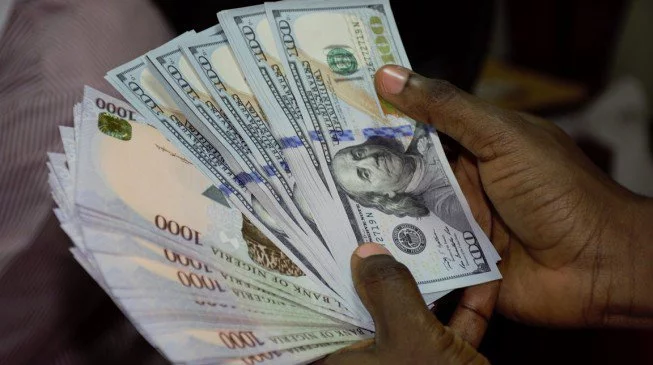PAG Felicitates Muslims on Commencement of Ramadan Fast
February 18, 2026TOP TEN MUSLIM UNIVERSITIES IN AFRICA
February 14, 2026ANALYSIS: Why Nigeria GDP is not the best in Africa Despite having the largest market
February 10, 2026US Dollar Further Bends For Nigeria’s Naira In Official, Unofficial Market
US Dollar Further Bends For Nigeria’s Naira In Official, Unofficial Market

In specific terms, the Nigerian Autonomous Foreign Exchange Market (NAFEM) reported the Naira closing at N1,072.74/$1 on Wednesday. This marked a substantial appreciation of 6.6% or N75.40 compared to the previous day’s rate of N1,148.14/$.
Furthermore, the Naira showed improvement against the pound sterling and the euro in official market dealings. According to data from the Central Bank of Nigeria (CBN), the Naira closed at N1,147.53/£1, a gain of N298.92 compared to the previous day’s rate of N1,446.45/£1. Against the euro, the Naira strengthened by N14.62, closing at N1,220.17/€1 as opposed to the previous day’s N1,234.79/€1.
In the unofficial market, the Naira’s positive performance persisted, with traders reporting an appreciation of N50, trading at N1,050/$1 compared to the previous rate of N1,100/$1.
Meanwhile, amidst discussions about Nigeria’s foreign reserves and the Naira’s appreciation, the Governor of the Central Bank of Nigeria (CBN), Olayemi Cardoso, clarified that the apex bank is not intervening to defend the Naira using the nation’s foreign reserves. Speaking at the Spring Meetings of the IMF and the World Bank, Cardoso emphasized the CBN’s focus on fostering a vibrant forex market where the Naira can function independently. He explained that the decline in foreign reserves was not aimed at defending the Naira but rather fulfilling other financial obligations.
Cardoso also underscored the importance of collaboration between monetary and fiscal authorities, highlighting efforts to address issues like food inflation and ensure financial stability. By adopting orthodox central banking practices, Cardoso aims to instill confidence in the Nigerian currency.
This development underscores a significant shift in Nigeria’s currency dynamics and monetary policy approach, aiming for a more sustainable and market-driven exchange rate system.
END.








